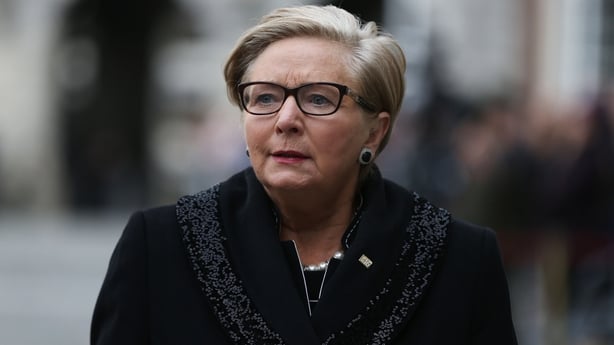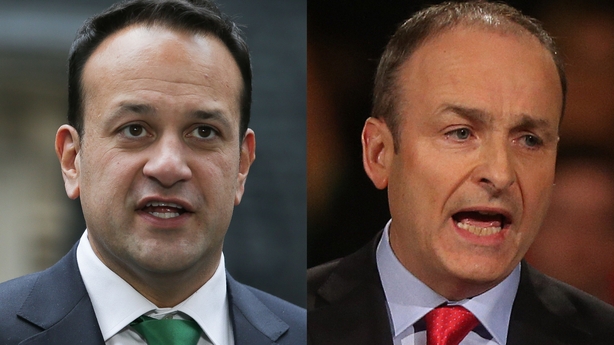Are we really heading towards an early general election? When will the Taoiseach go to Áras an Uachtaráin?
Most politicians, backroom staff and journalists in Leinster House are asking those questions and no one has the answers.
Although the Government and Fianna Fáil remain entrenched in their positions, many are hoping that a compromise can still be salvaged and an election that neither party wants, can be avoided.
It will depend on the outcome of meetings between the Taoiseach Leo Varadkar and the Fianna Fáil leader Micheál Martin.
Their previous two encounters on the garda whistleblower controversy proved unsuccessful.
It's hard to see how a compromise can be reached when one side is looking for the resignation of the Tánaiste Frances Fitzgerald (below), and the other is literally saying they won’t "throw her under a bus".

Any compromise would weaken the other side. The political pressure has been building throughout the day and no one is defusing the situation.
Fianna Fáil tabled a motion of no confidence in the Tánaiste. While Minister Simon Coveney said that if Fianna Fáil supports a no confidence motion, the confidence and supply deal, underpinning the minority coalition, is over.
There is no reading between those lines.
This afternoon, a very senior Fine Gael source told me that the agreement between the Government and the main opposition party is broken. He added that the no confidence motion is immaterial.
The clear implication is why wait around for the Dáil debate on the motion when the outcome is clear.
However, a government spokesperson said the Taoiseach wants to talk to the Fianna Fáil leader.
Micheál Martin is open to this but he bluntly said "they know our position".

Both parties are conscious that if this goes belly up and an election is called, the blame game will start.
They know the electorate will want to know who is responsible for the country going to the polls for the second time in less than two years. And, at such a crucial time in terms of the Brexit negotiations.
Fine Gael is blaming Fianna Fáil for a breach of the confidence and supply deal. Fianna Fáil says it would continue to support the minority Government if the Tanaiste resigns.
In truth, whatever happens the trust between both sides is seriously damaged. Fine Gael is also concerned that if the Tánaiste resigns, Fianna Fáil could come looking for another minister to answer questions i.e. Charlie Flanagan. The Government will also be watching the weekend papers to see if there are further revelations.
Both parties say they don’t want an election but they are now preparing for one. Mr Martin told his front bench they have to be ready. While the Fine Gael National executive, which organises its selection conventions, is meeting tomorrow.
One thing is certain - if the Dáil is dissolved and an election is called - it will be a short campaign. Fine Gael does not want a long one and wants to avoid postponing the inevitable until January.
The Constitution states that once the President issues a proclamation dissolving the Dáil, a general election must be held within 30 days.
After the President issues the proclamation, the clerk of the Dáil issues a writ to the returning officer in each constituency directing them to hold an election.
The Minister for Housing, Planning and Local Government then names the polling day which must be between the 18th and 25th day (excluding Sundays and public holidays) after the issue of the writ.
So if this crisis is not resolved - we are heading towards a December election.







